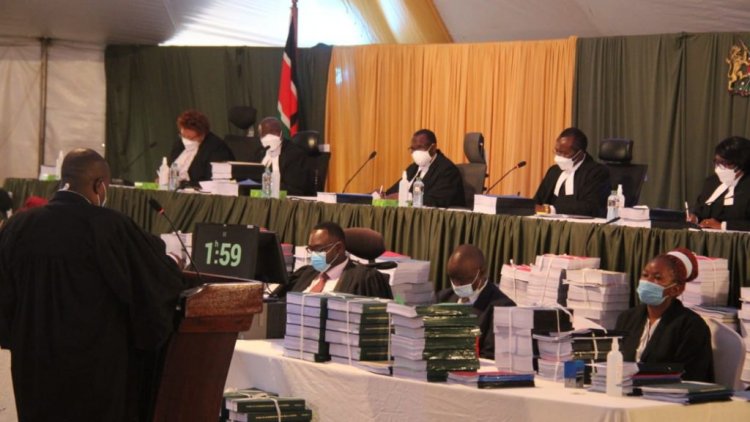The Appellate Court to Deliver the Much Anticipated BBI Ruling, Will Reggae be Stopped?
A 7-member appellate court bench was on Friday morning set to issue its ruling on the contested Building Bridges Initiative (BBI) constitutional amendment process, popularly referred to by its promoters as ‘reggae’.

The court of appeal President Daniel Musinga, Justices Fatuma Sichale, Patrick Kiage, Roselyn Nambuye, Hannah Okwengu, Gatembu Kairu, and Francis Tuiyot will determine whether a task force established to initiate the process was constitutional.
They will also rule on the applicability of the basic structure doctrine in Kenya, the president’s limits on the constitutional review process, and whether promoters of constitutional amendments can create and allocate new constituencies.
The judges will also determine the contentious issue of whether voters should consider amendments in a referendum as multiple and distinct questions or as an omnibus only voting ‘yes’ or ‘no’.
The basic structure doctrine and the electoral agency’s mandate on constituency boundary delimitation formed part of 21 declarations issued by a five-judge bench of Justices Prof Joel Ngugi, George Odunga, Jairus Ngaah, Chacha Mwita, and Matheka Mumbua in their decision to annul the process on May 14.
The Constitutional Court determined the basic structure doctrine is applicable thus limits amendment processes stipulated in Articles 255, 256, and 257 unless the primary constituent power is invoked through “four sequential processes namely: civic education; public participation and collation of views; Constituent Assembly debate; and ultimately, a referendum.”
The Justice Ngugi-led court also issued three declarations directed at President Uhuru Kenyatta the initiator of BBI jointly with Raila Odinga, his arch-enemy in the 2017 presidential election key among them a finding that the President violated Chapter 6 of the Constitution, and specifically Article 73(1)(a)(i).
The court also held that the President lacks the authority to initiate changes to the Constitution and that he could face civil proceedings for any action or inaction in the performance of official duties during his tenure.


























